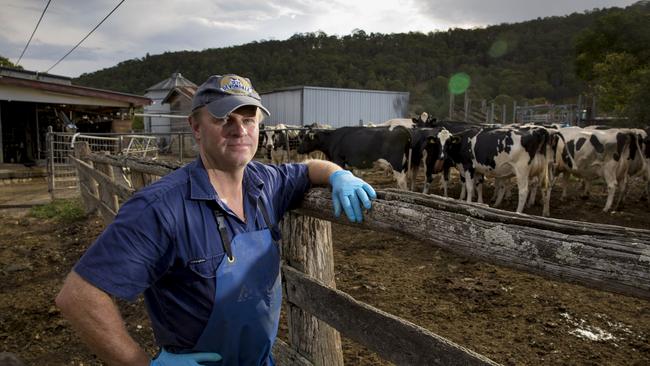Coal ruling risks up to $100bn in projects
An unprecedented court ruling may place a $100bn pipeline of fossil fuel developments in peril.

An unprecedented court ruling that links Australia’s coalmines to global climate change may place a $100 billion pipeline of fossil fuel developments in peril.
The Rocky Hill coking coal mine planned for the Hunter Valley was rejected yesterday after the NSW Land and Environment Court cited the “dire consequences” of the coal project on global pollution levels.
Graham Lloyd: Latest forecast — climate of fear
The judgment, which has shocked the nation’s resource owners, marks the first time an Australian court has rejected an approval for a coalmine due to its impact on global warming, according to the NSW Environmental Defenders Office.
The EDO fought the mine on behalf of local residents group Groundswell Gloucester.
“If there’s a project that has previously been refused approval by a court on climate change grounds anywhere in the world, I’m not aware of it,” the EDO’s chief executive David Morris said. “It’s a judgment of profound importance on mining decision-makers, who have to decide whether or not to approve fossil fuel developments.”
The developer of the mine, Gloucester Resources — controlled by German mining billionaire Hans Mende — aimed to produce 2.5 million tonnes a year of coal from the open-cut mine 3km south of Gloucester.
But development consent was refused, with the court’s chief judge Brian Preston — a former principal solicitor at the EDO — concluding the mine “would be in the wrong place at the wrong time”. “The project will be a material source of greenhouse emissions and contribute to climate change,” Justice Preston said.
Pollution from the coalmine would increase global emission levels “at a time when what is now urgently needed, in order to meet generally agreed climate targets, is a rapid and deep decrease in emissions”, Justice Preston said. “These dire consequences should be avoided. The project should be refused.”
Justice Preston’s dismissal of the mine followed previous rejections from the NSW Department of Planning and Environment and the state’s Planning Assessment Commission.
Former BHP boss Don Argus said he was concerned about the judge’s decision, particularly after coal last week overtook iron ore as the nation’s biggest export earner amid an ongoing renaissance for the industry.
“The demonisation of coal is something you have to be concerned with. We are being sucked into a debate without thinking about the economic consequences,” Mr Argus said.
Green groups have focused their efforts on eradicating thermal coal as the mineral that has to give way if Australia has any chance of meeting its long-run targets of reducing emissions.
However, the judge’s decision to link climate change to a mine for coking coal — an essential steelmaking ingredient which has suffered less agitation from environmentalists — serves notice on miners and energy companies wanting to develop new coal and gasmines, the EDO claims.
“For coal and gas companies, this will be a really disturbing judgment,” Mr Morris said.
He noted that the “wrong time” legal concept may be used in future cases involving fossil-fuel projects.
The court determined that the project would not assist in meeting climate change targets in the second half of the century.
The judge also noted how the mine had divided the Gloucester community, with 83 per cent of local submissions opposing it.
The closest properties are just a kilometre from the entrance to the mining pit and there was little to justify exploiting a coal resource in a scenic valley close to the town, the court noted.
Gloucester Resources said the court had misunderstood the Paris climate agreement, which had not ruled out the development of new coalmines.
“This is a coking coal mine and I don’t understand how Paris is relevant to this court decision,” Gloucester chief operating officer Brian Clifford said. “This judgment seems to supersede the actual Paris agreement. Nowhere in the Paris agreement does it say no new coalmines.”
Resources Minister Matt Canavan said the judgment was at odds with past rulings. “The question over carbon emissions from coalmining was considered and they found that no case could be made that one coalmine would increase carbon emission across the world,” he said.



To join the conversation, please log in. Don't have an account? Register
Join the conversation, you are commenting as Logout